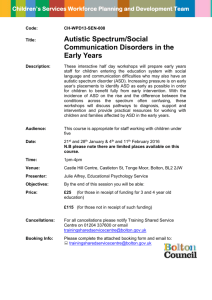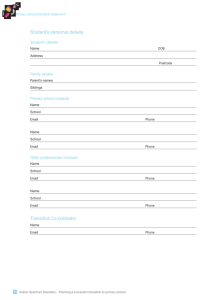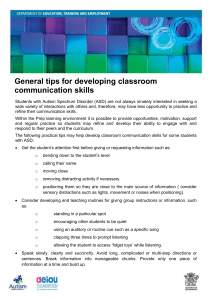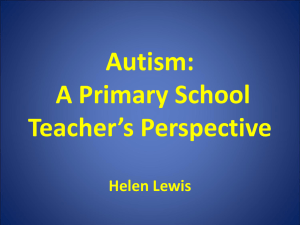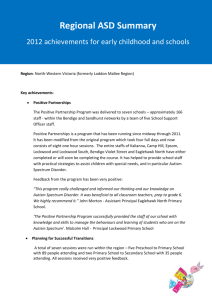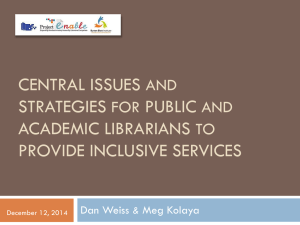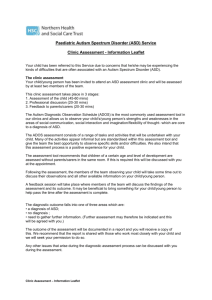Ongoing Research Studies
advertisement
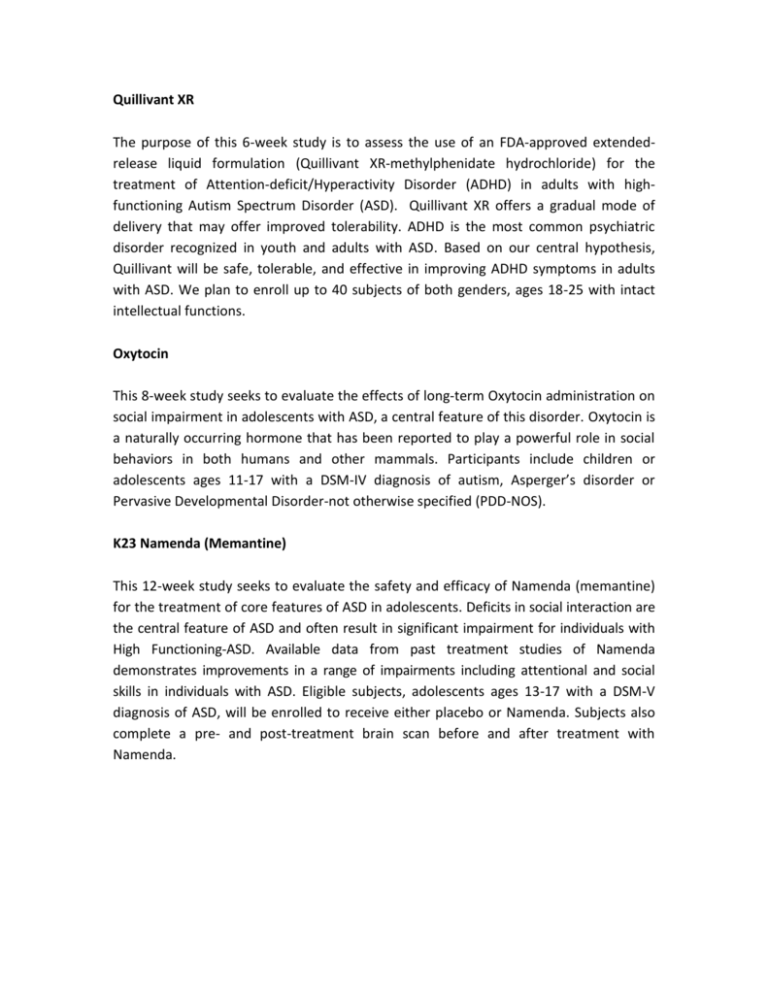
Quillivant XR The purpose of this 6-week study is to assess the use of an FDA-approved extendedrelease liquid formulation (Quillivant XR-methylphenidate hydrochloride) for the treatment of Attention-deficit/Hyperactivity Disorder (ADHD) in adults with highfunctioning Autism Spectrum Disorder (ASD). Quillivant XR offers a gradual mode of delivery that may offer improved tolerability. ADHD is the most common psychiatric disorder recognized in youth and adults with ASD. Based on our central hypothesis, Quillivant will be safe, tolerable, and effective in improving ADHD symptoms in adults with ASD. We plan to enroll up to 40 subjects of both genders, ages 18-25 with intact intellectual functions. Oxytocin This 8-week study seeks to evaluate the effects of long-term Oxytocin administration on social impairment in adolescents with ASD, a central feature of this disorder. Oxytocin is a naturally occurring hormone that has been reported to play a powerful role in social behaviors in both humans and other mammals. Participants include children or adolescents ages 11-17 with a DSM-IV diagnosis of autism, Asperger’s disorder or Pervasive Developmental Disorder-not otherwise specified (PDD-NOS). K23 Namenda (Memantine) This 12-week study seeks to evaluate the safety and efficacy of Namenda (memantine) for the treatment of core features of ASD in adolescents. Deficits in social interaction are the central feature of ASD and often result in significant impairment for individuals with High Functioning-ASD. Available data from past treatment studies of Namenda demonstrates improvements in a range of impairments including attentional and social skills in individuals with ASD. Eligible subjects, adolescents ages 13-17 with a DSM-V diagnosis of ASD, will be enrolled to receive either placebo or Namenda. Subjects also complete a pre- and post-treatment brain scan before and after treatment with Namenda. Buspar This 8-week study seeks to evaluate the safety and efficacy of Buspar (buspirone) for the treatment of significant anxiety in children and adolescents with ASD. Buspar is an approved medication for the treatment of anxiety symptoms, which are often present in children with ASD. Participants are children or adolescents ages 6-17 with a diagnosis of autism, Asperger’s disorder or PDD-NOS, and significant features of anxiety. ASD/ADHD fMRI This is an fMRI study in collaboration with Dr. John Gabrieli at MIT. This study with examines the brains of children with ADHD, as well as children with ASD+ADHD and children with neither. The major goal of this study is to use cognitive neuroscience methods to discover whether ADHD-like difficulties in ASD are associated either with the same or different brain characteristics. Eligible male participants, ages 8-17, are divided by diagnostic groups: comorbid ASD+ADHD, ADHD only, and healthy controls. ED/MRS The goal of this study is to use cognitive neuroscience methods to examine whether emotional dysregulation (ED) in ASD presents in the brain similarly to or differently from typical ED. Emotional dysregulation (ED) is characterized by poor self-regulation that includes symptoms of low frustration tolerance, impatience, quickness to anger, and marked emotional reactivity. Eligible adolescents ages 13-17 are divided into four groups based on the presence of ED and ASD: ASD with ED, ASD without ED, ED without ASD, and healthy controls.

